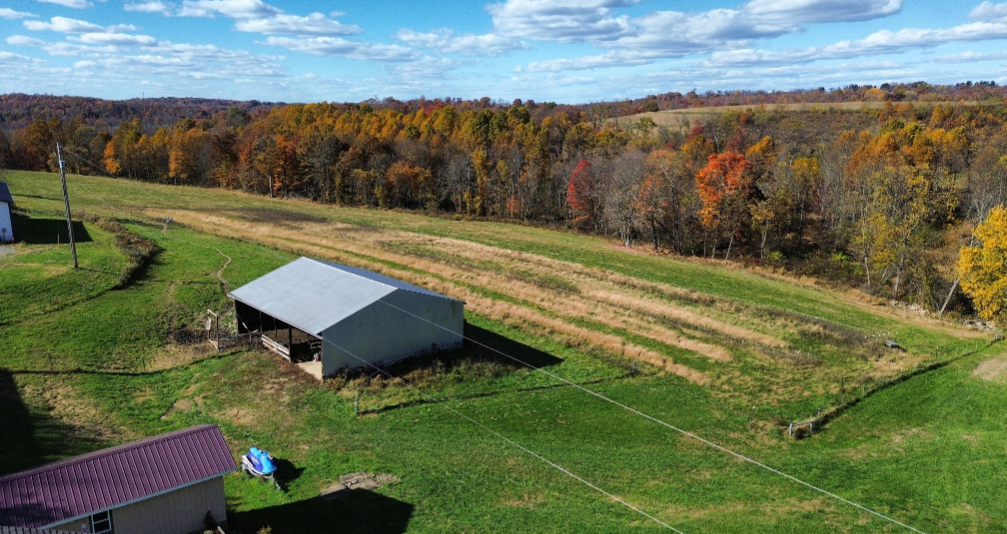By Cody Deluisio
Reconnecting with the Roots of Agriculture
In a world increasingly dominated by technology and industrial processes, there’s a quiet revolution happening on the backroads of places like Western Pennsylvania. Farmers, myself included, are returning to the roots of agriculture—literally and figuratively—to cultivate not just crops and livestock, but a deeper connection with the land and our food.

Understanding Ethical Farming
Ethical farming is more than just a set of practices; it’s a philosophy that respects the intrinsic value of nature and all its inhabitants. It involves treating animals humanely, nurturing the soil, and fostering biodiversity. By prioritizing the well-being of the environment over short-term gains, we create a sustainable system that benefits everyone.
Raising Livestock with Compassion
On my farm, every animal is more than just a commodity; they’re sentient beings deserving of respect. Pasture-raised poultry and cattle roam freely, expressing their natural behaviors. This approach not only leads to healthier, happier animals but also results in higher-quality meat and dairy products. It’s a win-win situation that industrial farming often overlooks.

The Soil Beneath Our Feet
Healthy soil is the foundation of any successful farm. By avoiding synthetic fertilizers and pesticides, and instead using natural composting and crop rotation, we enhance soil fertility and structure. This not only boosts productivity but also contributes to carbon sequestration, playing a small yet vital role in combating climate change.
Innovations in Sustainable Practices
Innovation doesn’t have to mean high-tech gadgets. Sometimes, it’s about applying traditional wisdom in new ways or creating simple solutions to everyday problems. For instance, building my own pellet mill allowed me to produce customized feed, ensuring my animals receive optimal nutrition without unnecessary additives. These kinds of innovations empower farmers to be self-reliant and resourceful.
The Role of Hemp in Sustainable Agriculture
Hemp is a remarkable crop with the potential to revolutionize sustainable farming. As a licensed hemp grower, I’ve witnessed its versatility firsthand. Hemp enriches the soil, requires minimal pesticides, and offers a multitude of uses—from textiles to biodegradable plastics. Embracing hemp cultivation is a step toward a more sustainable and environmentally friendly agricultural model.

Challenging Industrial Norms
The dominance of industrial agriculture has led to a disconnect between people and the sources of their food. Mass production often prioritizes efficiency over quality, and profit over ethics. By adopting and promoting ethical farming practices, we challenge these norms and advocate for a system that values health, sustainability, and compassion.
Building a Community Around Shared Values
One of the most rewarding aspects of this journey has been connecting with others who share a passion for ethical farming and sustainable living. Whether it’s collaborating with local farmers, participating in community-supported agriculture (CSA) programs, or engaging with consumers at farmers’ markets, these interactions foster a sense of community and shared purpose.
Educating and Inspiring Others
Knowledge is a powerful tool for change. By sharing experiences, techniques, and insights, we can inspire others to make more conscious choices about the food they consume and the impact it has on the world. Education extends beyond the farm—to schools, community groups, and even online platforms—spreading awareness about the importance of ethical agriculture.

Embracing the Challenges and Rewards
Farming isn’t without its challenges. There are unpredictable weather patterns, market fluctuations, and the physical demands of the work. However, the rewards far outweigh the hardships. There’s immense satisfaction in seeing the tangible results of one’s labor, nurturing life, and contributing positively to the environment and society.
A Call to Action
We all have a role to play in shaping the future of our food system. By supporting ethical farming practices—whether through purchasing decisions, advocacy, or personal involvement—we can drive demand for more sustainable and humane approaches to agriculture. Together, we can create a healthier planet and a more compassionate world.
About the Author:
Cody Deluisio is an ethical farmer based in Western Pennsylvania. Dedicated to sustainable agriculture and humane livestock practices, Cody focuses on raising pasture-fed animals, innovative farming solutions, and hemp cultivation. Through his work and outreach, he aims to reconnect people with the land and promote a more ethical food system.
Join the Movement
Interested in ethical farming or sustainable living? Share your thoughts, experiences, and ideas, and let’s work together toward a more sustainable future.

